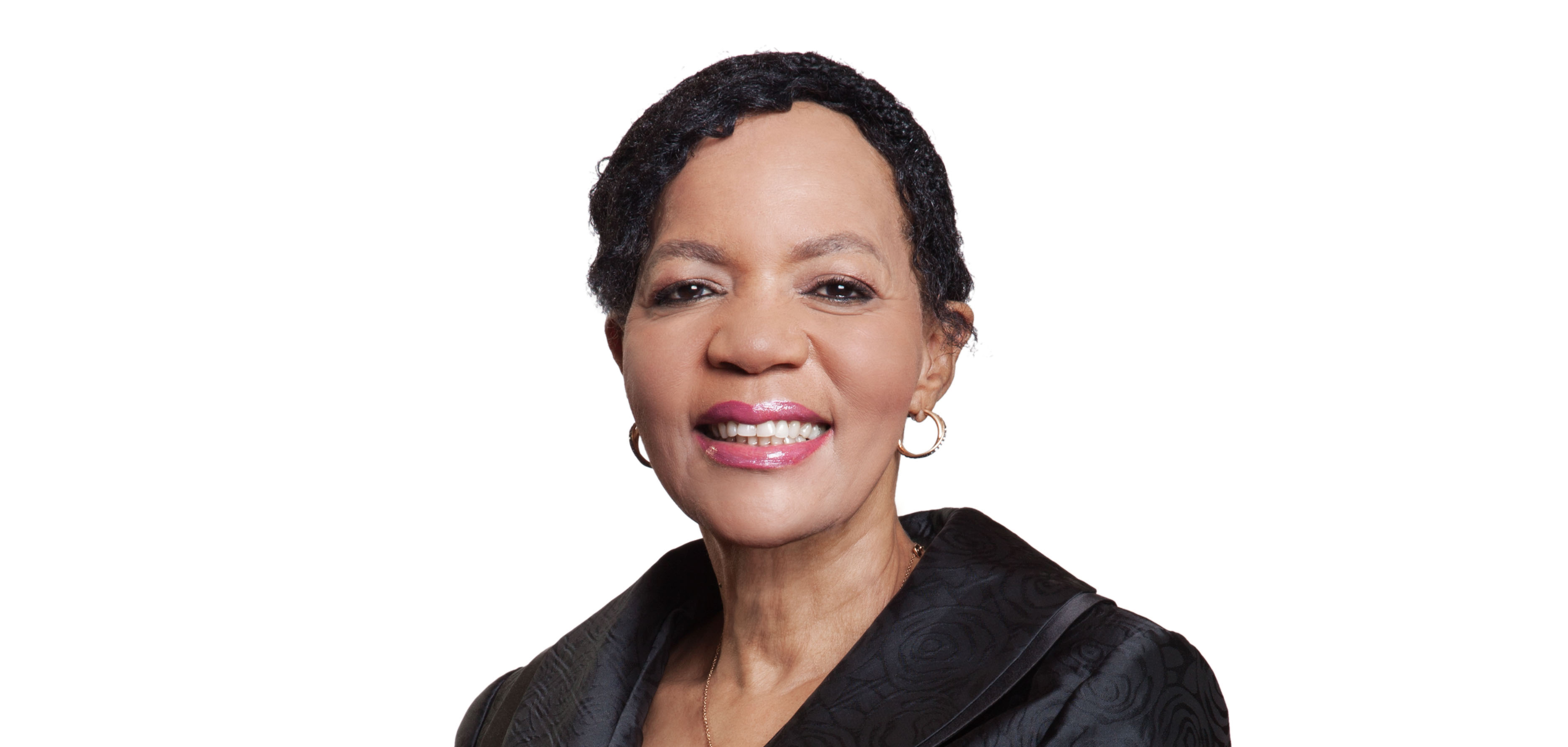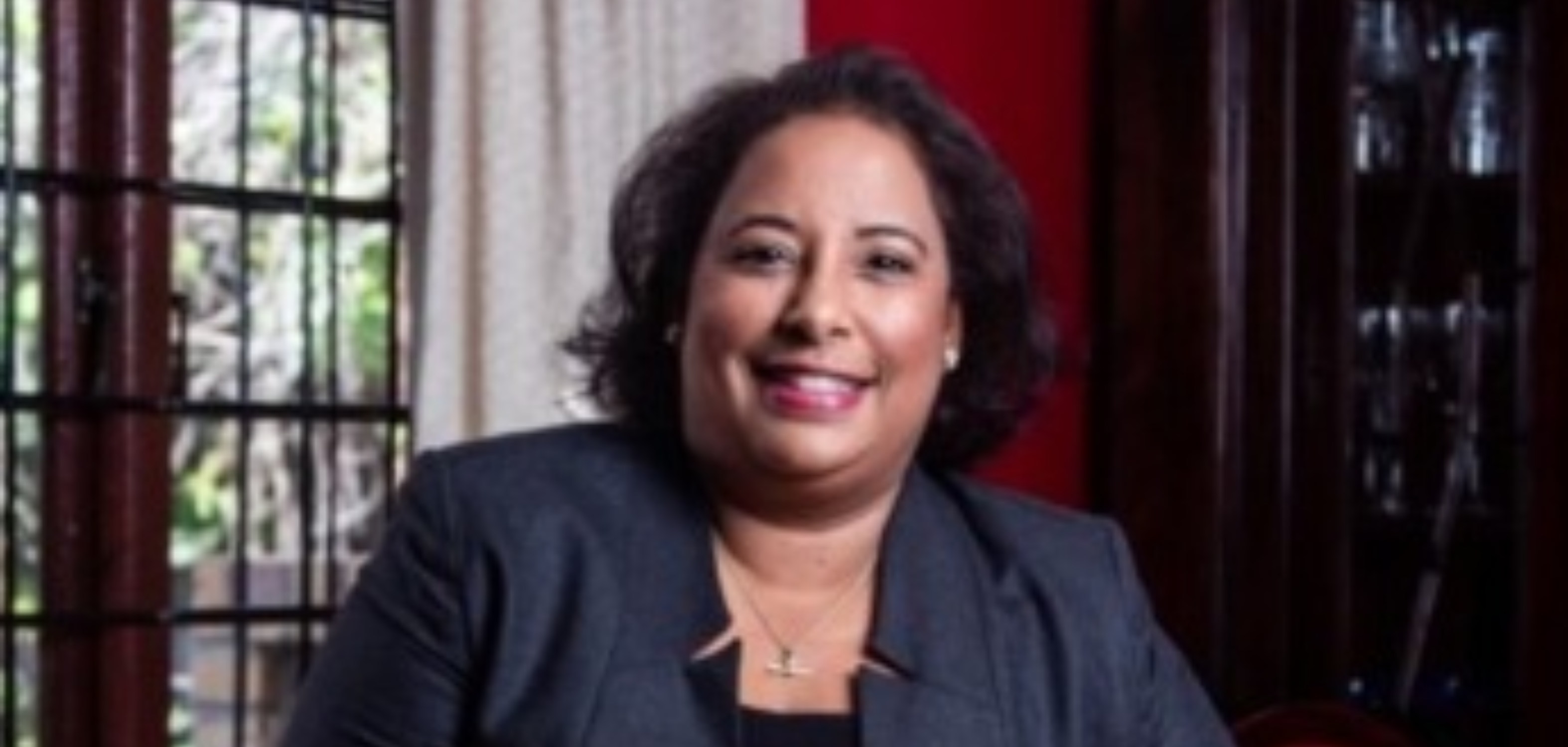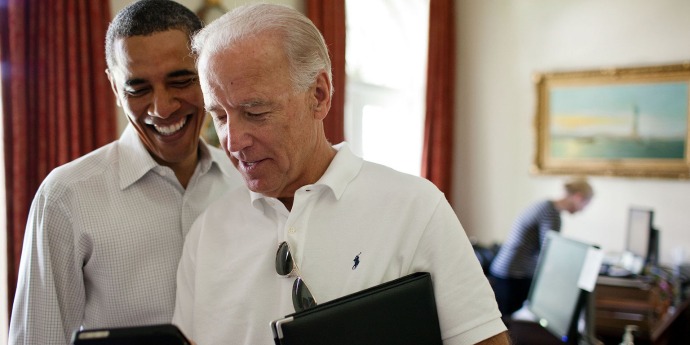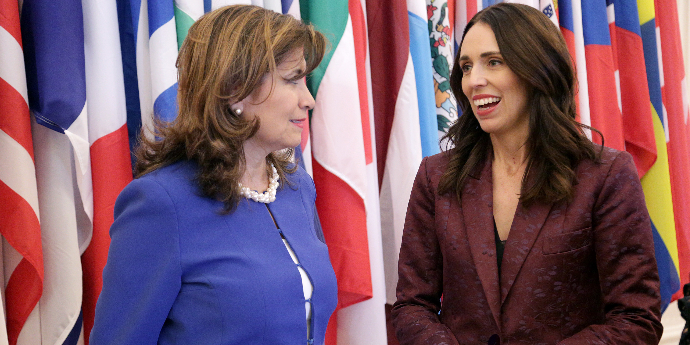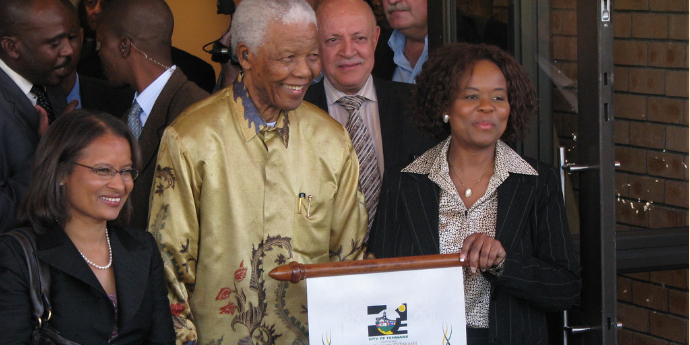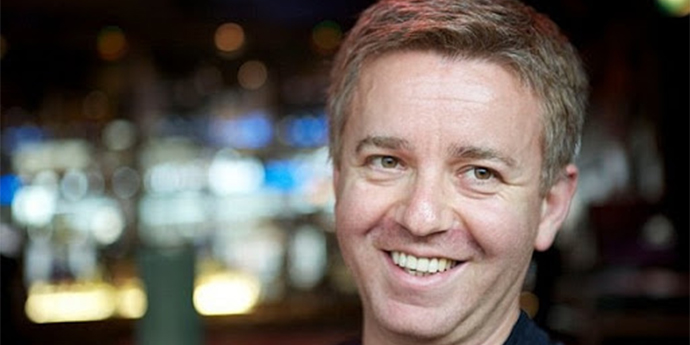“Should profit and shareholder value continue to be the exclusive drivers of business, or might values, purpose and meaning be more effective drivers for the 21st century?”
This is one of the difficult questions about the assumptions supporting current business management models that the Allan Gray Centre for Values-Based Leadership probes.
Part of the UCT Graduate School of Business (GSB), the centre is “dedicated to exploring new ways of doing business based on purpose, sustainability and responsible practices that create dignity and belonging”.
In this Q&A, associate professor Camaren Peter shares some more insight about the centre, its approach and values-based leadership.
What defines values-based leadership? Isn’t all leadership values based?
Yes, that is absolutely true. Whether we like it or not, we are always acting out our values in the world. Because a value is when you attribute worth to something. It could be profit or dominance of a segment or a market. Or it could be to better understand what the societal role of your organisation may be, and to speak to that more clearly and convincingly.
So we are always acting out our values, but I think the main difference is to understand the differentiation between what the espoused or implicit and the enacted or explicit values are in an organisation.
Values-based leadership is essentially a reaction to the corporate accounting scandals the 1990s, such as WorldCom and Enron. It is a considered attempt to set up a new way of thinking about leadership, where your espoused values and your enacted values can align.
Charles Warriner, the author of The Problem of Organisational Purpose, says that companies have different purposes for different audiences: for their members, for their stakeholders, and for their consumers and clients. And so, he says, these purposes are essentially fictions.
Could the alignment between espoused and enacted values not be termed “integrity” in the sense of organisations walking the talk? And if so, are you basically teaching companies to have more integrity?
In the sense that what we're looking for is an authentic acting out of companies’ values in the world, yes. But what I'm trying to do is to avoid lapsing into separating things in a binary way between virtue and evil.
So, in my teaching, what I try to get students to grapple with is whether, as organisations or at an individual level, we are all capable of both. We all as individuals hold values that are divisive and nonbinary; our self-centred and self-serving values are in tension with more altruistic and benevolent values. And this also plays out at an organisational level.
How do you teach something like that?
The two core elements of what I teach is critical thinking — how to achieve a balance between these so-called binaries — and reflective practice.
Critical thinking is hinged on balancing instrumental rationality and value rationality. Instrumental rationality is more strategic. It's like, these are the rules of the game. This is what our competitors are doing. This is the strategic terrain. It's what we conventionally think of as calculated strategy.
Whereas value rationality is where you stick your flag in the ground and say, these are the values I live by, or we live by, and we will not budge from them.
Max Weber, the godfather of literature on bureaucracy, writes about value rationality and instrumental rationality and says any decision made on the basis of one alone is potentially harmful.
So how we appraise values, from a critical thinking perspective, is about balancing value and instrumental rationality.
So, when things are going well and business is booming, then you can respond with value rationality, but when things are dire — for instance when you're not meeting shareholders expectations — then it's instrumental rationality all the way, right? Or the other way round, like when a billionaire suddenly becomes an altruist ...
That's exactly the dichotomy that we're trying to deal with, and where reflective practice comes in. And the teaching of reflective practice is not something you can do through textbooks alone. So we put students through processes of grappling with some difficult and challenging questions, like how to make a decision precisely when you're pushed.
For example, the first case study they deal with is whether they would have gone to the 2018 Future Investment Initiative (AKA Davos in the desert) in Saudi Arabia after the international outcry after veteran journalist Jamal Khashoggi, a known critic of the country's Crown Prince Mohammed bin Salman, was killed in the Saudi consulate in Istanbul. This case study is intended to make them reflect at an early stage — before we even start the course — how they would rationalise the decision to either go or not go.
Through engaging with reflective practice, we're building their capacity to not lapse into instrumental value rationality, but to have the awareness to bring both of those rationalities [to the decision-making process]. And what's important about this is that we’re not prescribing what values they should have. We’re not setting up a set of good values and bad values. We are empowering them to grapple with values by themselves.
In your years of teaching, what are some of the greatest lessons that you yourself have learnt?
The most important thing I have learnt is to embrace a co-constructed learning experience with the students that is fully inclusive of their worlds, and to engage in a Socratic process that's reflective so there's a constant feedback loop.
I think this approach is what distinguishes the UCT GSB from a lot of other institutions in terms of its teaching of leadership. Whether it's on the MBA programme or the Executive MBA programme, there's a personal transformation that students go through in terms of building the leadership capacities from the inside out, and not just from textbooks.
What is the vision of the Alan Gray Centre for Values-Based Leadership?
The vision for the Alan Gray Centre for Values-Based Leadership was developed by the chair, professor Kurt April, and it delineates along two broad dimensions: personal leadership and organisational leadership.
The personal leadership aspects get students to grapple with what it really means to show up at a personal level as a leader in the world. It's a personal journey that dives quite deep into an individual's own capacities, their own values and their own experiences.
I teach organisational leadership, and we're bringing more of that systems perspective, we're applying design thinking, we're trying to think through the complexities of what's driving value divergence in an organisation.
The UCT GSB is not designed to teach things in a thoughtlessly corporate way. We see our role as being transformative of the role of business in society: that business should be a part of the social compact, that it produces the kinds of societies and ecologies that we need to produce if we're going to see out the end of the century without succumbing to the grand challenges that we're facing, from climate change to the fourth industrial revolution.
Anecdotally, I would say that GSB is one of the best spaces within UCT to be a faculty member. We support each other and collaborate extremely well; we punch far above our weight in terms of the kinds of journals we publish and the work we put out. And I think that's largely due to the values of the school successfully having propagated through the organisation.
There is a sense of purpose among faculty members about the difference they want to make in the world. How do we make this African renaissance happen? GSB is supporting social innovation and entrepreneurship through the Bertha Centreand the Solution Space. We have incubated very many businesses and continue to do so.
So, it's not just in terms of theory and publications that we make a difference, it's in terms of the practice of the school as well. That's where there's a strong value alignment between what we say we do in the world and what we actually do, and we can be measured on that.
And that's improved now that we have a leader — the UCT GSB’s director, Catherine Duggan — who's strategically shaping the future of the school and its role on the continent as well as across the world.
How has the thinking and teaching of values-based leadership changed or evolved over the years?
I'm now writing a book on the basis of the course, where the emphasis is on a non-ideological approach to values-based leadership. How I'm trying to evolve it is based on my understanding of values-based leadership and some of its shortcomings. The classroom has actually become a test ground to see whether I can shift people with this kind of non-ideological systems and complexity-based perspective, which mobilises design thinking — to think out of the box and creatively about how you get value land where an organisation might be struggling.
As I said previously, values-based leadership was consciously set up as project in the wake of the 1990s corporate accounting scandals. Not long after that we had the dotcom bubble and then the sub-prime mortgage crisis. When the dotcom crisis happened, China bought up US Treasury bonds, to give them the ability to buy Chinese products, basically. But they took that money and created, in simple terms, the sub-prime mortgage crisis. And so it speaks to some of the fundamental problems in that system.
Values-based leadership hasn't actually been around as a scholarly discourse for a long time — just over the past 20 years or so. In that time, there's been what I call a galaxy of values-based leadership styles, everything from servant leadership to stewardship. The three core values-based leadership styles are authentic leadership, ethical leadership and transformational leadership. And to boil it down simply, it's not any one of these leadership styles alone that produces values-based leadership — it's the combination of them.





